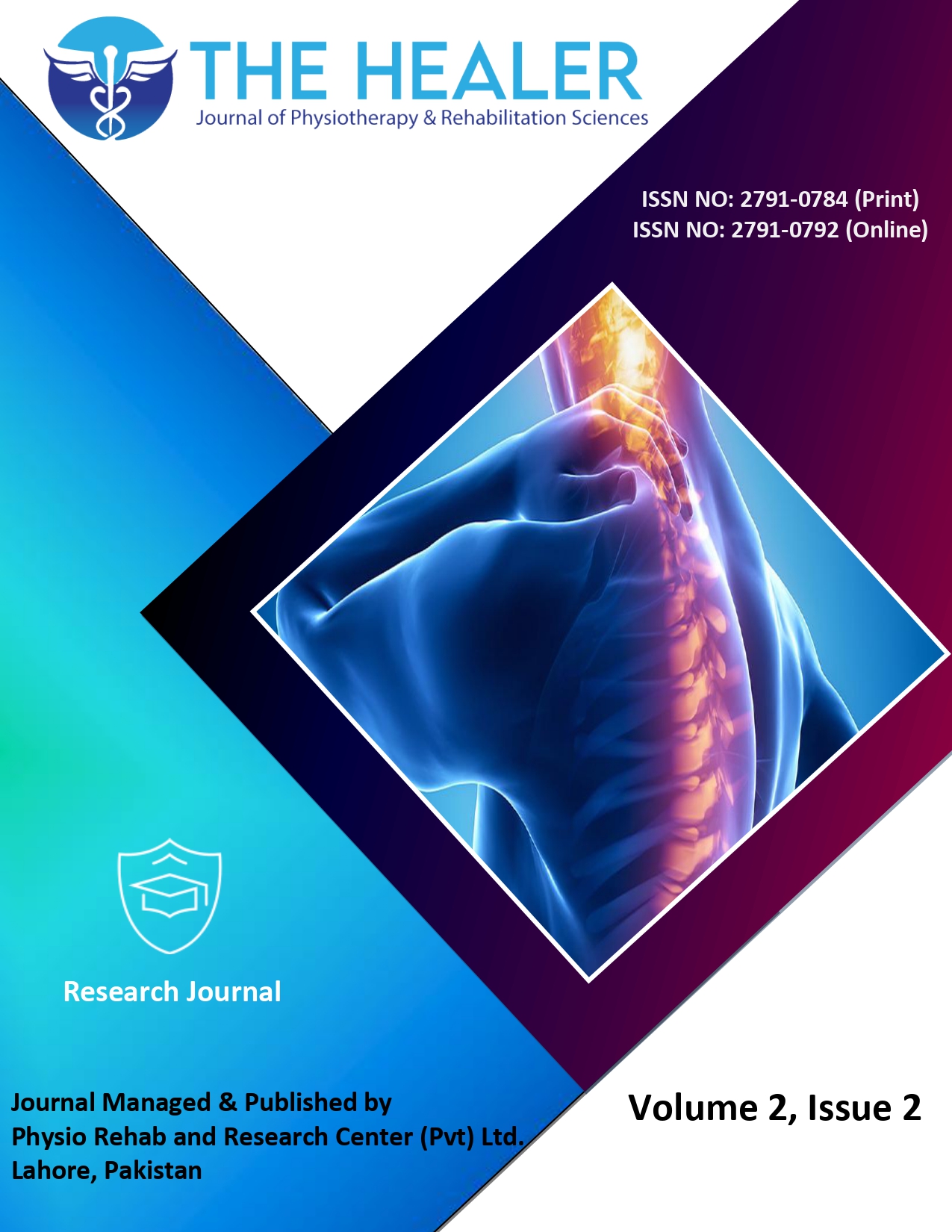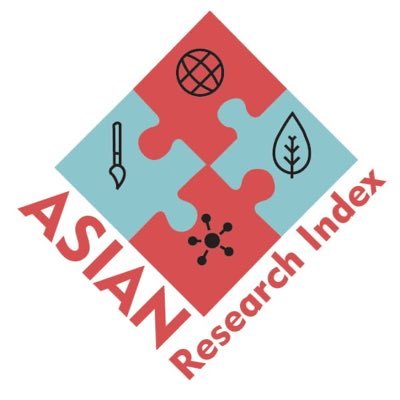Impact of Attending Online Classes on Mental Health Among University Students During COVID-19 Pandemic in Lahore
Impact of Online Classes in Covid-19
DOI:
https://doi.org/10.55735/hjprs.v2i2.89Keywords:
coronavirus disease, COVID-19, physical therapy, quality of life, stressAbstract
Background: There are many challenges that people face in their lives. Recently, the whole world was affecting because of a unique virus known as COVID-19 or coronavirus. Objective: To determine the impact of attending online classes on mental health among university students during the COVID-19 pandemic in Lahore. Methods: This cross-sectional study was conducted on 215 undergraduate students who were locked down in their homes during the COVID-19 pandemic and took online classes using the depression, anxiety, stress scale and online learning scale through convenient sampling. The demographics were reduced to numbers, percentages, and frequencies for analysis. The frequency and percentage of occurrence were selected as the presentation formats for qualitative variables. Cross-tabulation was used to see whether online learning was related to depression, anxiety, or stress levels. Results: Among 215 Undergraduate students, 53 (24.7%) were males and 162 (75.3%) were females. While 15 (7.0%) presented with symptoms, the level of depression was moderate among 65 (30.2%), severe 69 (32.1%) and extremely severe 81 (37.7%). Level of anxiety was moderate among 23 (10.7%), severe at 32 (14.9%) and extremely severe at 160 (74.4%) while the level of stress was normal 15 (7.0%), mild at 25 (11.6%), moderate 59(27.4%), severe 71 (33.0%) and extremely severe 45 (20.9%). There was a significant association between online classes and mental health including depression, anxiety and stress as the p-value was 0.029, 0.045 and 0.043 respectively. Conclusion: The level of depression, anxiety and stress was high among undergraduate university students during the COVID-19 pandemic. There was a significant impact of online classes on mental health symptoms including the level of depression, anxiety, and stress. Students taking online classes suffer from poor mental health.
Downloads
References
Srivastava N, Baxi P, Ratho R, Saxena SK. Global trends in epidemiology of coronavirus disease 2019 (COVID-19).Coronavirus disease 2019 (COVID-19): Springer; 2020. p. 9-21. 10.1007/978-981-15-4814-7_2.
Sajed AN, Amgain K. Corona virus disease (COVID-19) outbreak and the strategy for prevention. Europasian Journal of Medical Sciences. 2020;2(1):1-3. DOI: https://doi.org/10.46405/ejms.v2i1.38
Suryawanshi R, More V. A Study of Effect of Corona Virus Covid-19 and Lock Down on Human Psychology of Pune City Region. Studies in Indian Place Names. 2020;40(70):984-94. doi.org/10.1007/s11042-021-11004-w
Liu S, Yang L, Zhang C, Xiang Y-T, Liu Z, Hu S, et al. Online mental health services in China during the COVID-19 outbreak. The Lancet Psychiatry. 2020;7(4):e17-e8. DOI:https://doi.org/10.1016/S2215-0366(20)30077-8
Yuan Z, Xiao Y, Dai Z, Huang J, Chen Y. A simple model to assess Wuhan lock-down effect and region efforts during COVID-19 epidemic in China Mainland. Medrxiv. 2020. doi: https://doi.org/10.1101/2020.02.29.20029561
Raj U, Fatima AJAaS. Stress in Students after Lockdown Due to COVID-19 Thereat and the Effects of Attending Online Classes. 2020. .doi.org/10.2139/ssrn.3584220
(PHEIC). WHOWIHRIopcPHEoIC. 2005.
Brooks SK, Webster RK, Smith LE, Woodland L, Wessely S, Greenberg N, et al. The psychological impact of quarantine and how to reduce it: rapid review of the evidence. The Lancet. 2020. doi.org/10.1016/S0140-6736(20)30460-8
Graham RL, Donaldson EF, Baric RS. A decade after SARS: strategies for controlling emerging coronaviruses. Nature Reviews Microbiology. 2013;11(12):836-48. https://doi.org/10.1038/nrmicro3143
Wilder-Smith A, Chiew CJ, Lee VJ. Can we contain the COVID-19 outbreak with the same measures as for SARS? The Lancet Infectious Diseases. 2020. doi.org/10.1016/S1473-3099(20)30129-8
Chauhan S. Comprehensive review of coronavirus disease 2019 (COVID-19). Biomedical journal. 2020;43(4):334-40. doi.org/10.1016/j.bj.2020.05.023
Shereen MA, Khan S, Kazmi A, Bashir N, Siddique R. COVID-19 infection: Emergence, transmission, and characteristics of human coronaviruses. Journal of advanced research. 2020;24:91-8. doi.org/10.1016/j.jare.2020.03.005
Lau JT, Yang X, Pang E, Tsui H, Wong E, Wing YK. SARS-related perceptions in Hong Kong. Emerging infectious diseases. 2005;11(3):417. doi: 10.3201/eid1103.040675
Emami A, Javanmardi F, Pirbonyeh N, Akbari AJAoaem. Prevalence of underlying diseases in hospitalized patients with COVID-19: a systematic review and meta-analysis. 2020;8(1). https://doi.org/10.1007/s40200-020-00667-1
Ahmed U, Karimi H, Amir S, Ahmed AJJoimr. Effects of intensive multiplanar trunk training coupled with dual-task exercises on balance, mobility, and fall risk in patients with stroke: a randomized controlled trial. 2021;49(11):03000605211059413.
Karatas S, Yesim T, Beysel S. Impact of lockdown COVID-19 on metabolic control in type 2 diabetes mellitus and healthy people. Primary Care Diabetes. 2021;15(3):424-7. doi.org/10.1016/j.pcd.2021.01.003
Armbruster S, Klotzbücher V. Lost in lockdown? COVID-19, social distancing, and mental health in Germany. Diskussionsbeiträge; 2020. hdl.handle.net/10419/218885
Houston S. Lessons of COVID-19: virtual conferences. Journal of Experimental medicine. 2020;217(9). doi.org/10.1084/jem.20201467
Kim Y-H. Academic exchange in the COVID-19 era. Archives of Plastic Surgery. 2020;47(04):287-9. DOI: 10.5999/aps.2020.01172
Chen T, Rong J, Peng L, Yang J, Cong G, Fang J, editors. Analysis of social effects on employment promotion policies for college graduates based on data mining for online use review in China during the COVID-19 pandemic. Healthcare; 2021: MDPI. doi.org/10.3390/healthcare9070846
Sahu PJC. Closure of universities due to Coronavirus Disease 2019 (COVID-19): impact on education and mental health of students and academic staff. 2020;12(4). DOI: 10.7759/cureus.7541
Acharya SJAaS. Stress in the Students after Lockdown due to Outbreak of Corona Virus (COVID-19). 2020. .doi.org/10.2139/ssrn.3627022
Wang C, Pan R, Wan X, Tan Y, Xu L, Ho CS, et al. Immediate psychological responses and associated factors during the initial stage of the 2019 coronavirus disease (COVID-19) epidemic among the general population in China. International journal of environmental research and public health. 2020;17(5):1729. doi.org/10.3390/ijerph17051729
Bento TPF, dos Santos Genebra CV, Maciel NM, Cornelio GP, Simeão SFAP, de Vitta A. Low back pain and some associated factors: is there any difference between genders? Brazilian Journal of Physical Therapy. 2020;24(1):79-87. doi.org/10.1016/j.bjpt.2019.01.012
Zhang Y, Ma ZF. Impact of the COVID-19 pandemic on mental health and quality of life among local residents in Liaoning Province, China: A cross-sectional study. International journal of environmental research and public health. 2020;17(7):2381. doi.org/10.3390/ijerph17072381
Odriozola-González P, Planchuelo-Gómez Á, Irurtia-Muñiz MJ, de Luis-García R. Psychological symptoms of the outbreak of the COVID-19 crisis and confinement in the population of Spain. 2020. doi.org/10.1177/1359105320967086
Nguyen HC, Nguyen MH, Do BN, Tran CQ, Nguyen TT, Pham KM, et al. People with Suspected COVID-19 Symptoms Were More Likely Depressed and Had Lower Health-Related Quality of Life: The Potential Benefit of Health Literacy. Journal of clinical medicine. 2020;9(4):965. doi.org/10.3390/jcm9040965.

Downloads
Published
License
Copyright (c) 2022 The Healer Journal of Physiotherapy and Rehabilitation Sciences

This work is licensed under a Creative Commons Attribution 4.0 International License.














